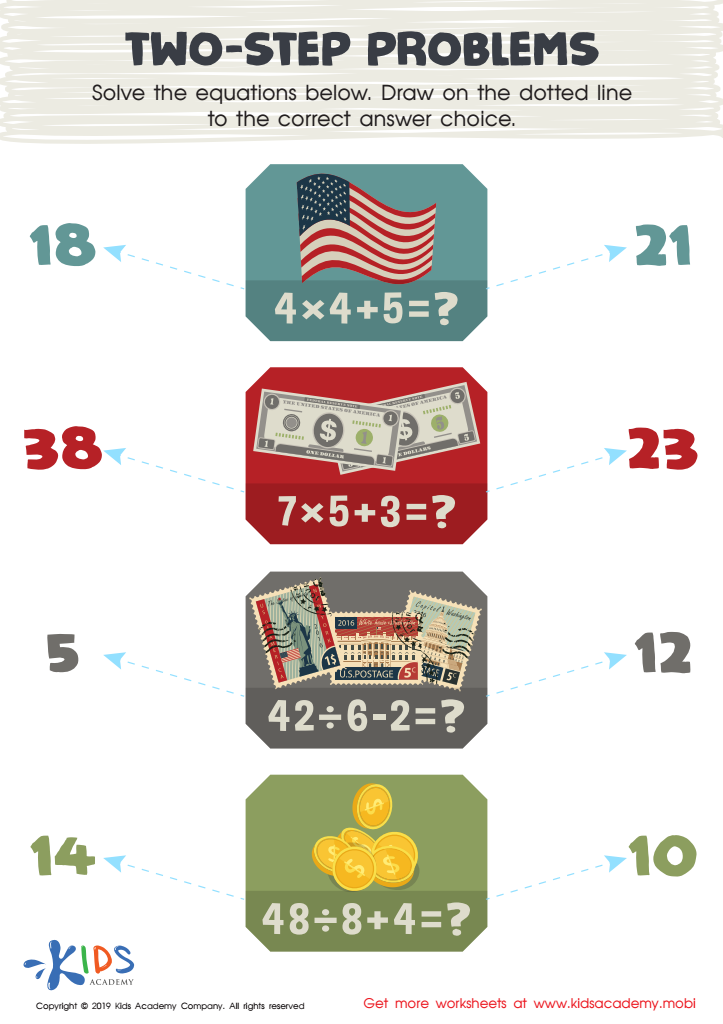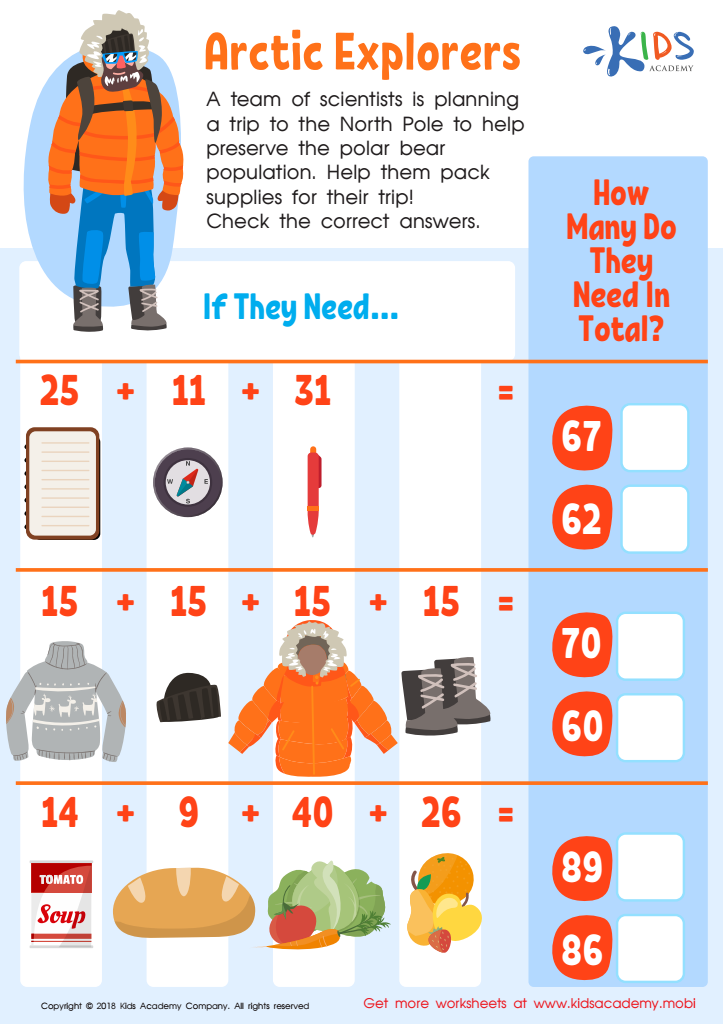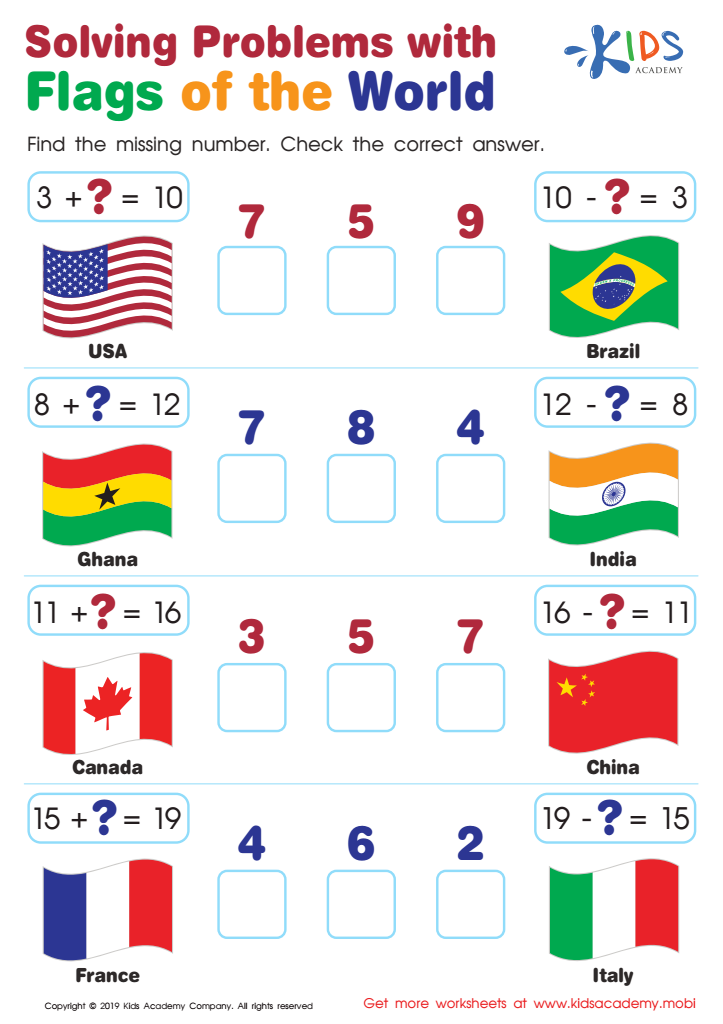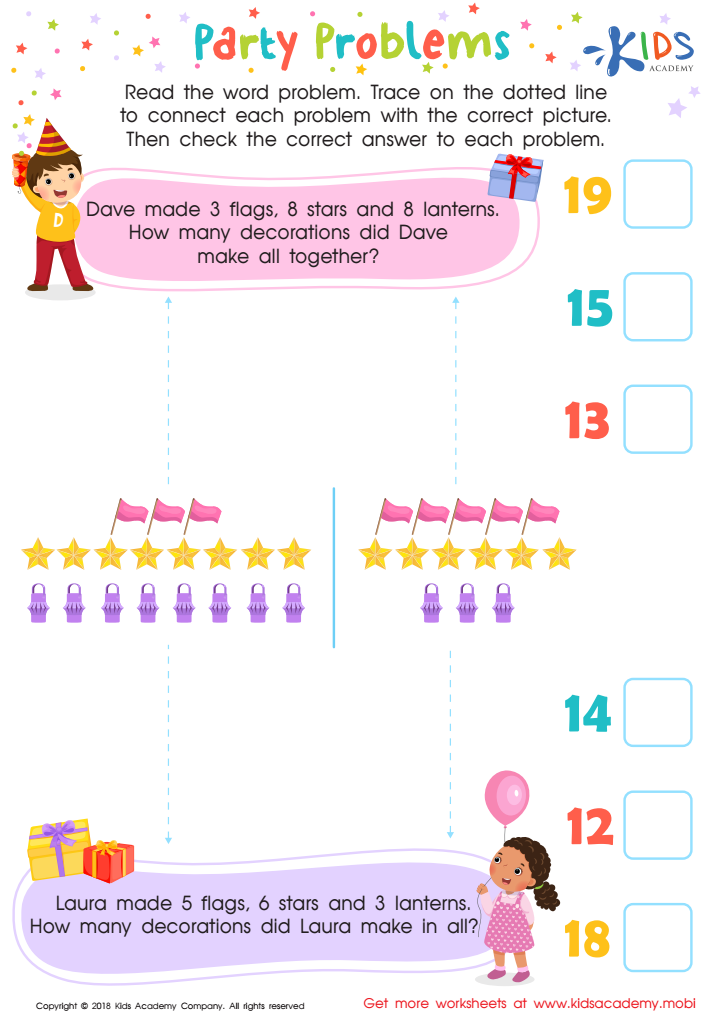Critical Thinking Normal Addition & Subtraction Worksheets for Ages 3-8
6 filtered results
-
From - To
Enhance your child's mathematical skills with our engaging Critical Thinking Normal Addition and Subtraction Worksheets tailored for ages 3-8. These interactive worksheets not only focus on basic arithmetic but also promote cognitive development by encouraging kids to solve problems creatively and logically. With a variety of exercises designed to challenge young minds, children will explore different strategies for addition and subtraction, fostering resilience and confidence in their math abilities. Ideal for early learners, our worksheets provide a fun and educational way to build a strong foundation in math while developing essential critical thinking skills. Perfect for home or classroom use!


Tricky Problems Worksheet: Part 1


Two-Step Problems Worksheet


Arctic Explorers Worksheet


Word Problems: Assessment 2 Worksheet


Solving Problems with Flags of the World Worksheet


Party Problems Worksheet
Parents and teachers should prioritize critical thinking in normal addition and subtraction for children ages 3-8 because it lays a foundational skill set crucial for lifelong learning. Engaging in critical thinking encourages young learners to not only understand mathematical operations but to grasp the underlying concepts that drive them. This age is pivotal for cognitive development, and fostering critical thinking helps cultivate problem-solving abilities, creativity, and analytical skills.
Additionally, these essential skills prepare children for future mathematical challenges and help them develop the confidence needed to tackle more complex concepts. By encouraging critical thinking in addition and subtraction, children learn to analyze problems, identify patterns, and develop strategies, rather than relying solely on memorization.
Moreover, critical thinking strengthens communication abilities as children articulate their thought processes and explore different approaches to a problem. This collaboration fosters social skills and emotional intelligence.
Ultimately, when parents and teachers focus on developing critical thinking within mathematical contexts, they empower children to become independent thinkers. This creates a more harmonious connection between mathematics and real-life applications, ingraining an early appreciation for learning and promoting overall academic success. Investing in these skills at a young age provides a strong springboard for future educational pursuits.
 Assign to My Students
Assign to My Students




















